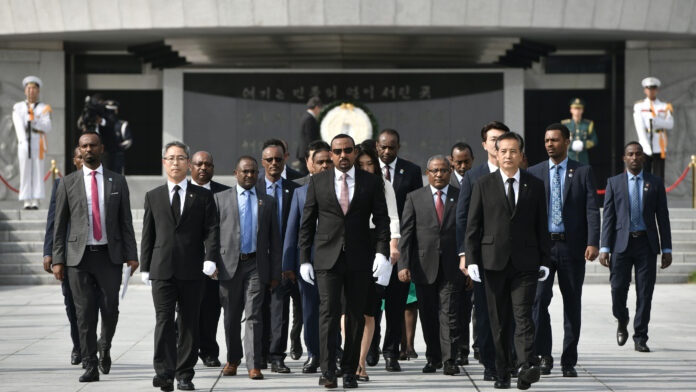
In a groundbreaking initiative aimed at addressing food security concerns and promoting global cooperation, South Korea is set to embark on a transformative partnership with eight African nations. The agreement, to be signed next week, will mark a significant milestone in South Korea’s mission to become a “global pivotal state” under President Yoon Suk Yeol’s visionary foreign policy. With a focus on rice production, this collaborative endeavor seeks to empower African countries, boost local economies, and ensure self-sufficiency in the face of volatile global trade dynamics.
African Appeal for Assistance
Recognizing the urgent need for support, South Korea’s Agriculture Minister Chung Hwang-Keun emphasized how African authorities emphasized the criticality of assistance during his visits to the continent. The disruptive effects of supply chain breakdowns and skyrocketing rice prices fueled concerns about food security and strained foreign exchange reserves. Rice, a staple in West Africa, currently meets only 60% of the region’s demand, making it highly vulnerable to market fluctuations.
The K-Ricebelt Project
Empowering African Rice Production: To address this pressing issue, South Korea unveiled the ambitious K-Ricebelt Project, a comprehensive initiative aimed at revolutionizing rice cultivation in Africa. By establishing state-of-the-art facilities across Ghana, Guinea, Guinea-Bissau, Gambia, Senegal, Cameroon, Uganda, and Kenya, South Korea will produce high-yielding rice seeds tailored to local conditions. These improved varieties are projected to achieve two to three times higher yields than existing domestic strains.
Investment in the Future
South Korea’s commitment to fostering agricultural self-reliance in Africa is reflected in its substantial financial investment. The initiative, set to commence in 2027, will allocate over $77 million, or 100 billion won, over a four-year period for the distribution of 10,000 tonnes of rice seeds annually. This financial support underscores South Korea’s dedication to reciprocating the assistance it received during its own challenging times.
A Global Pivotal State
President Yoon Suk Yeol’s visionary foreign policy aims to position South Korea as a proactive participant in international affairs. By spearheading this transformative rice production initiative, South Korea takes a significant step towards realizing its goal of becoming a global pivotal state. The project’s positive impact on food security, local economies, and diplomatic ties is expected to enhance South Korea’s standing on the global stage.
Celebrating Collaborative Efforts
The World Food Program of the United Nations has warmly applauded the forthcoming project agreements between South Korea and the participating African countries. The partnership showcases the power of international cooperation in addressing global challenges. By combining South Korea’s agricultural expertise with Africa’s vast potential, this collaboration has the potential to uplift communities, strengthen trade networks, and foster sustainable development.
The imminent signing of the agreement between South Korea and eight African nations marks a historic milestone in the pursuit of global food security. By investing in the K-Ricebelt Project and empowering African nations to cultivate high-yield rice varieties, South Korea exemplifies its commitment to reciprocating support received in the past. Through this visionary initiative, South Korea takes bold steps towards fulfilling President Yoon Suk Yeol’s ambition to transform the nation into a global pivotal state. As South Korea and Africa unite, the stage is set for a rice revolution that will nourish nations, foster self-sufficiency, and create a more interconnected world.

